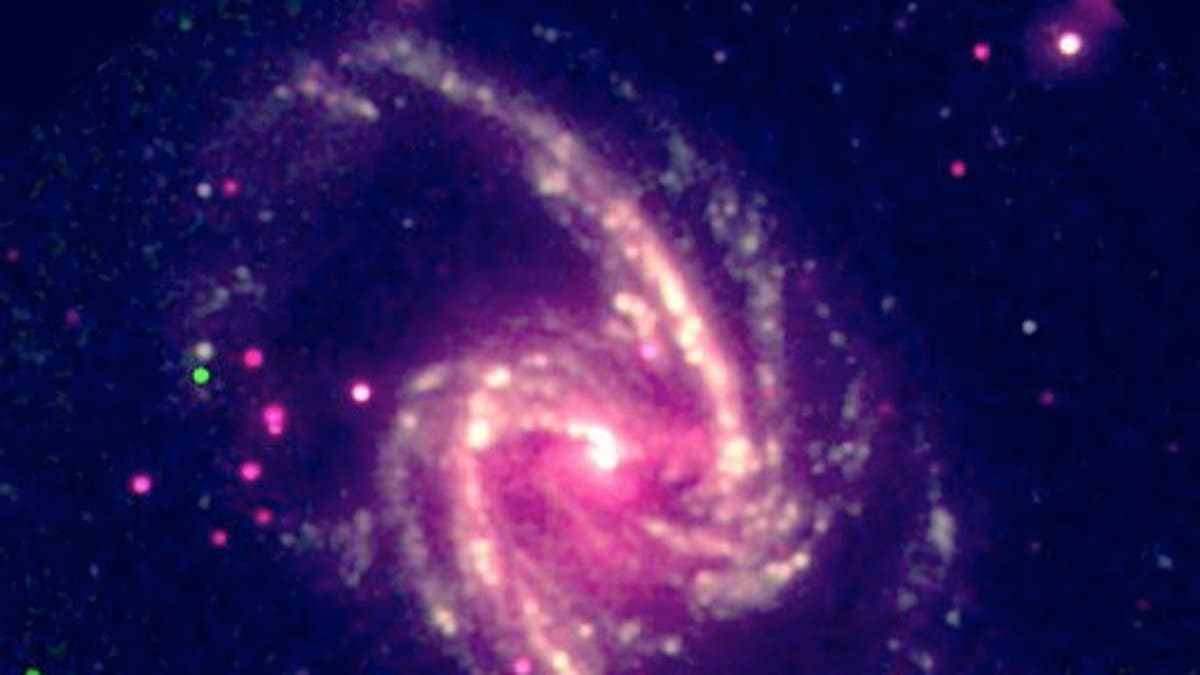
This image released by Arcetri Astrophysical Observatory shows a supermassive black hole in the nearby spiral galaxy NGC 1365. Unless, of course, black holes don't exist? (AP Photo/Guido Risaliti, Arcetri Astrophysical Observatory)
Massive stars don't just fade away, they collapse into black holes, right? Even non-scientists have at least a vague notion of these mysterious forces of nature out there in deep space.
Well, sorry to spoil everybody's fun, but a physics professor at the University of North Carolina says she can prove that black holes can't exist, reports UNC.edu.
Short version: The math doesn't work, writes Laura Mersini-Houghton in a paper at ArXiv. “I’m still not over the shock,” she says. "We’ve been studying this problem for a more than 50 years and this solution gives us a lot to think about." Big caveat: Papers in the online collection at ArXiv have not been peer-reviewed.
But if Mersini-Houghton is correct, some fundamental assumptions about the Big Bang will be called into question. She agrees that huge stars eventually collapse under the weight of their own gravity and, as Stephen Hawking has shown, emit radiation as they do so.
But her calculations suggest that in shedding this radiation, a star also sheds so much mass that it loses the ability to turn into a black hole.
Collapsing stars "probably blow up" instead, concludes her paper, which is supported by calculations from an expert in something called numerical relativity at the University of Toronto.
Expect pushback from physicists and laymen alike for two main reasons, writes Jason Major at Universe Today: First, "the popularity of black holes in astronomical culture," and second, "the many—scratch that; the countless—observations that have been made on quite black hole-ish objects found throughout the Universe." (Stephen Hawking also said this year that there are no black holes.)
This article originally appeared on Newser: Professor: I've Got Proof Black Holes Don't Exist
More From Newser








































